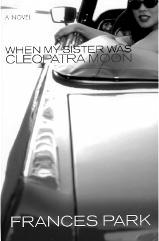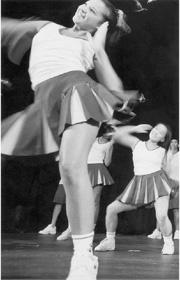IT’S GOOD TO SEE more Korean-American novelists coming out of the fray, adding to the diversity of Asian-American literature. Unfortunately, Frances Park’s When My Sister Was Cleopatra Moon is a clunky, less than riveting debut.
When My Sister Was Cleopatra Moon
by Frances Park (Talk Miramax Books, $22.95)
The book opens with the reunion of two Korean-American sisters, Marcy and Cleo Moon, who’ve lost touch for decades for reasons that are undisclosed, save for vague statements that Cleo has “a dark side.” The thirtysomething Marcy narrates her love-hate relationship with Cleo, flashing back to the summer she was 13.
Marcy’s recollections of a childhood fraught with insecurities make up the book’s better moments. As a young girl, Marcy has hair like “black straw” and is taunted by the white boys in her school, who call her “Miss Moonface.” Her only allies are Meg, a white girl whose friendship baffles Marcy—”Why me?” she asks—and her beautiful older sister Cleo, whose hair “moves like the ocean.” Marcy idolizes Cleo, but Cleo, as it turns out, is a wild child who ditches college and frequently gets drunk. Summer becomes turbulent as Cleo—who wears tube tops and lands in the backseat of many cars—suffers breakups, a botched abortion, and an increasingly bitter attitude toward everyone around her.
Young Marcy is a lively narrator, and if Park had stuck with her all the way the novel may have been better for it. But chapters alternate between the voices of the teenage Marcy and the older Marcy. At 36, Marcy is a vegetarian who lives in the Nevada desert and manages a nonprofit store that sells Native American knickknacks. She talks a lot about peace, charity, and a homemade soup she and her likewise spiritual boyfriend Pablo eat for every meal—and the book becomes an unsavory hybrid between Amy Tan and Deepak Chopra.
The older Marcy is far from simple; the woman has a lot of baggage and still holds a deep grudge against Cleo. She’s also less articulate than her teenage self, her words too often clouded by New Age mysticism: “My love for White Sky is an almost painful longing, so primitive it hurts. I belong here. I belong to the purplish light that breaks through the sky . . . and I belong to the souls of the sagebrush. I belong to an ancient wonder for which there are no words.” Perhaps, but when you put it like that, it’s hard to care.







